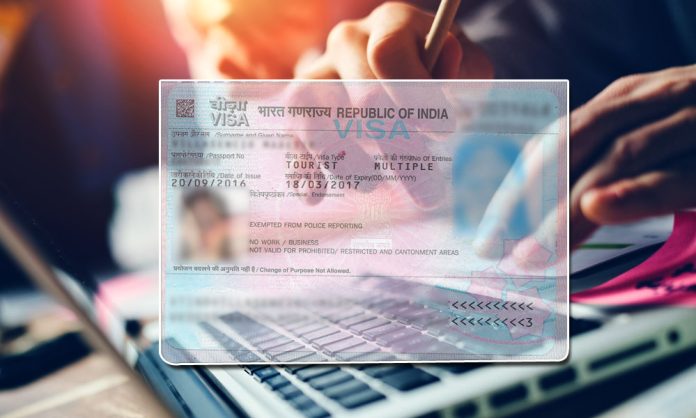In the vibrant tapestry of India’s cultural landscape, there exists a plethora of experiences awaiting eager travelers from across the globe. Whether it’s the majestic Taj Mahal in Agra, the bustling streets of Delhi, or the serene backwaters of Kerala, India offers something for everyone. However, before embarking on a journey to this diverse nation, it’s essential to understand the intricacies of obtaining the right visa. From tourism to business endeavors, India offers a range of visa types tailored to accommodate different purposes of travel. Let’s delve into the various categories of Indian visas and decipher which one suits your needs best. TYPES OF INDIAN VISA
Tourist Visa (TV)
Among the most sought-after visas for travelers looking to explore India’s cultural, historical, and natural wonders is the Tourist Visa. Valid for tourism, sightseeing, visiting friends and relatives, and other non-business activities, the Tourist Visa permits individuals to stay in India for a specified duration. Typically, tourist visas are granted for a maximum of six months, with multiple-entry options available for certain nationalities. It’s essential to note that activities such as voluntary work or attending a conference may not be permissible under a tourist visa, necessitating alternative visa categories.
Business Visa (BV)
For those seeking to engage in business-related activities such as attending meetings, conferences, or exploring investment opportunities, the Business Visa serves as the appropriate choice. This visa category facilitates individuals intending to establish business ventures, set up industrial/business ventures, or purchase/sell industrial products. Business visas are usually granted for a duration ranging from six months to multiple years, depending on the nature of the business engagement. Additionally, individuals applying for a Business Visa may need to provide supporting documents such as letters of invitation from Indian companies or proof of business dealings.
Also read: The Mysteries of The Thirty (30) Days Indian Visa
Employment Visa (EV)
The Employment Visa caters to individuals seeking employment opportunities in India. This visa is typically issued to skilled professionals, experts, or individuals employed by companies operating in India. To qualify for an Employment Visa, applicants must secure employment with an Indian company or organization and obtain approval from the Indian Ministry of Home Affairs. Employment visas are generally granted for a period of one year and can be extended further based on the individual’s employment tenure and sponsorship.
Student Visa (SV)
India’s rich academic heritage and esteemed educational institutions attract students from around the world seeking to pursue higher education in diverse fields. The Student Visa is designed for foreign nationals enrolled in recognized educational institutions in India. Whether it’s pursuing a degree program, undertaking research, or participating in academic exchanges, the Student Visa facilitates seamless access to India’s educational ecosystem. Applicants are required to provide proof of admission to a recognized institution and demonstrate adequate financial resources to sustain themselves during their course of study.
Medical Visa (MV)
India’s healthcare sector has gained international recognition for its advanced medical facilities and affordable treatment options. The Medical Visa caters to individuals seeking medical treatment in India. Whether it’s undergoing specialized procedures, seeking alternative therapies, or availing of holistic wellness programs, the Medical Visa ensures access to India’s renowned healthcare infrastructure. Applicants are required to provide a medical certificate confirming the need for specialized treatment along with an invitation from a recognized healthcare facility in India.
Conference Visa (CV)
India’s status as a global hub for conferences, seminars, and workshops necessitates a dedicated visa category for participants attending such events. The Conference Visa enables individuals to attend international conferences, seminars, workshops, and training programs held in India. Applicants are required to provide details of the conference, including the organizer’s invitation and event agenda. Conference visas are typically granted for the duration of the event and may include provisions for pre and post-conference travel.
Research Visa (RV)
For scholars, researchers, and scientists seeking to engage in research activities in India, the Research Visa offers a pathway to access the country’s academic and scientific resources. This visa category caters to individuals involved in research projects, collaborations, or academic exchanges with Indian institutions. Applicants are required to provide documentation detailing their research objectives, affiliation with Indian institutions, and sponsorship arrangements. Research visas are generally granted for the duration of the research project, with provisions for extensions as necessary.
Journalist Visa (JV)
Journalists, reporters, and media personnel intending to cover events, conduct interviews, or gather news in India must obtain a Journalist Visa. This visa category is specifically designed for professionals working in the field of journalism and requires accreditation from a recognized media organization. Journalist visas are subject to strict scrutiny, and applicants may be required to provide a detailed itinerary of their journalistic activities during their stay in India.
Transit Visa (TV)
For travelers transiting through Indian airports en route to their final destination, the Transit Visa provides a brief stopover option. Transit visas are granted for a maximum period of 15 days and are intended solely for the purpose of transit. Applicants must provide proof of onward travel and valid visas for their destination country. It’s important to note that individuals opting for this visa category are not permitted to engage in any activities outside the transit area of the airport.
Conclusion
Navigating the intricacies of Indian visa categories can seem daunting at first glance, but understanding the nuances of each visa type is crucial for a smooth and hassle-free travel experience. Whether you’re planning a leisurely vacation, pursuing academic endeavors, or exploring business opportunities, India offers a diverse array of visa options tailored to accommodate your specific needs. By choosing the right visa category and adhering to the requisite application procedures, you can embark on a memorable journey to discover the wonders of India’s rich cultural heritage, vibrant landscapes, and dynamic economy.

